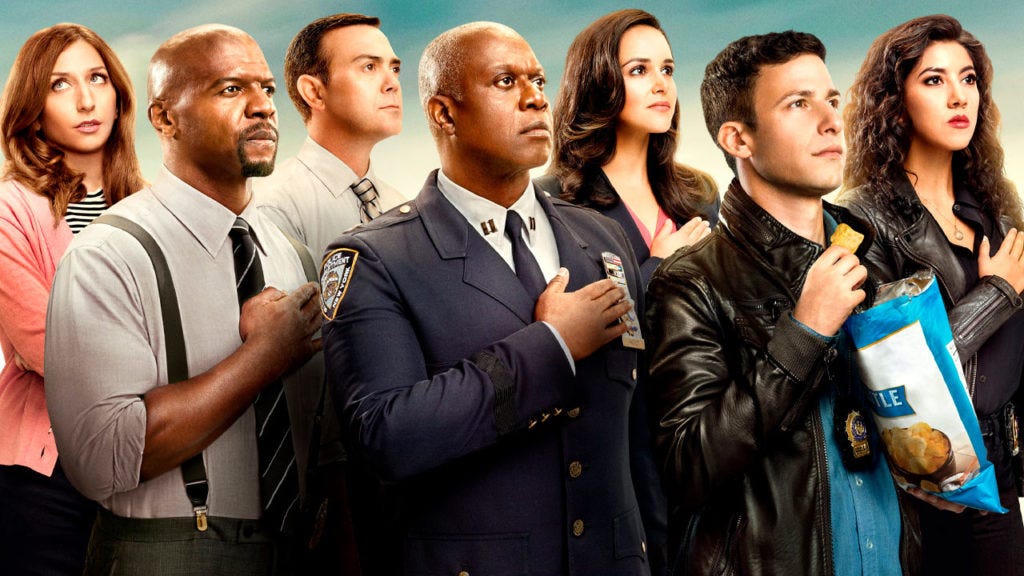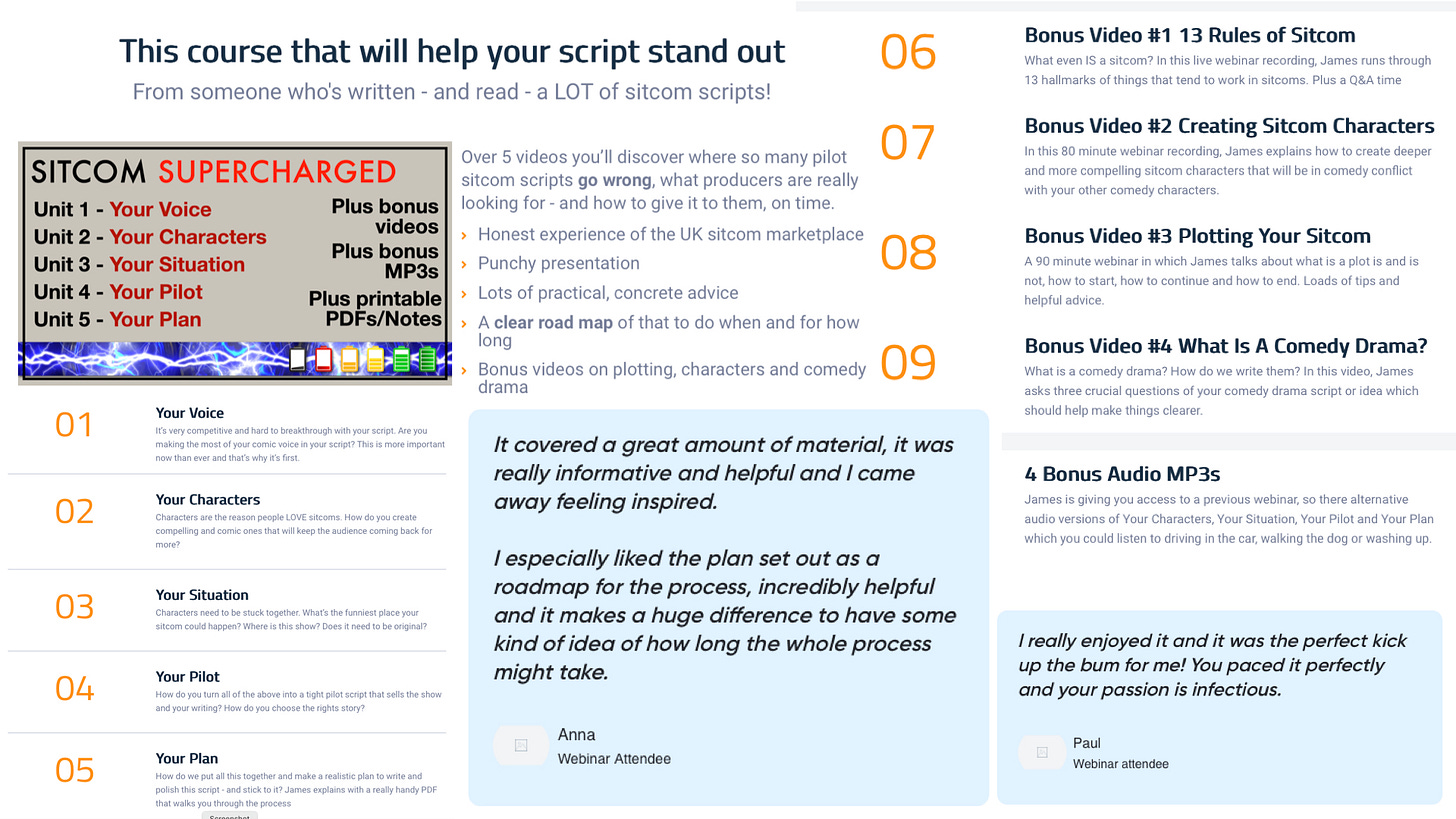This time, we’re going to cover the eighth of nine personality types, but we’re going to delve into how characters interact, addressing a common problem with sitcom scripts: conflict. There’s either too much. Or not enough. I’ll explain how to fix it with a worked example that I have to admit I’m quite pleased with, given it is for illustrative purposes!
The Control Freak is based on the Enneagram type 8 known as the ‘Challenger’ or ‘Protector’. As before, we need to be crystal clear on what our characters want. Their desires are everything and motivate their action. That’s why I’ve renamed this character The Control Freak. They want control of their own lives. And they do not want to be controlled.
In some ways, they’re a Boy Scout (Type 6), who should be able to survive in the woods. But the Boy Scout may have become a self-reliant boy scout because he is terrified that he can’t ultimately depend on other people. The Control Freak doesn’t WANT to depend on other people. And they don’t want others to depend on them. They want to keep their options open. They want don’t want to be tied down. They don’t want to be locked into long-term arrangements. That is their worst nightmare.
When we looked at the Boy Scout, I used Ron Swanson as an example. But maybe he’s a Control Freak.
What about Monica from Friends? She presents as a control freak. Or is she a Type #1 Goodie who sees the world as something to be fixed and it’s up to her to fix it? (Again, my daughter thinks that).
Character Confusion
It’s not surprising it gets confusing because sitcoms are not generally written with Enneagrams in mind. Moreover, things get subtle and nuanced, especially when the character is really rounded out over 200 episodes.
But confusion is our friend here. I know, I know. I normally say that “Confusion is the Enemy of Comedy” – and I’m 100% right about that, by the way. Confusion is also a friend in some cases. As long it’s not the audience that is confused but the characters.
The revelation that they are not on the same page after all, especially when it’s too late to do anything about it, is potentially very funny and gives us the right kind of confusion and conflict in our sitcom.
Let’s pause here and note this because I regularly encounter a couple of versions of the same problem when reading sitcom scripts:
2 Conflicting Problems with Your Pilot Sitcom Script
Problem #1: You know conflict is good, but there’s too much of it. You’ve written two characters who are in constant conflict with each other. For thirty pages, the characters get on each other’s nerves. This is extremely tiresome and not very funny after a while.
Problem #2: There is no conflict at all. The characters are all talking past each other, in a world of their own. This might be because you know characters need quests, so you’ve given each character a different quest. This means they are not interacting with each other when anything is at stake. They are ships passing in the night. So we stop caring and the sitcom feels diffuse and less than the sum total of there parts. That’s because there is no conflict at all, so it’s not very funny or compelling.
HERE'S THE SOLUTION:
The characters are confused about their overlapping personality types. They don’t understand that they are hiding deep-seated goals, hopes and fears. So they are on the same page, until they are not.
Look at Brooklyn 99, a feel-good funny show in which the characters work together and against each other in way that really works. That’s because they are all cops with a shared purpose. But, crucially, they are all cops for different reasons. Go through each of the characters and ask yourself: why are they cops? The answer is different for each character. Which gives us the cohesion and shared goals, but also the conflict, fun and games.
A Boy Scout, a Thrill Seeker and a Control Freak go into the woods…
Let me explain further with a fictional example of how this could look in an episode of a sitcom.
A Boy Scout, a Thrill Seeker and a Control Freak literally go on a camping trip out in the wild woods. They are doing something that appeals to each of them. They start out happy and united – even excited. But also blissfully unaware of the conflict that awaits because they each want this trip to the woods for different reasons.

The Boy Scout is thrilled that he has two other people camping with him, because he doesn’t want to be alone. He has two friends with him that he can rely on. Or so he thinks. But for now, he is literally a happy camper. He wants to sing songs, catch fish and tell spooky stories late into the night.
The Control Freak loves going into the woods. Now he is stuck with two other people he realises what he likes about the woods: the solitude. Not the woods. Not the camaraderie. Not the thrill of survival. He doesn’t want to compromise his own plans for the sake of the group. Or tell spooky stories late into the night. He really wants the Boy Scout to shut up. And the Thrill Seeker to jump in the lake. And then regrets saying so for reasons that will become clear.
The Thrill Seeker is loving the challenge of trip. He’s intentionally packed light to see if he can hack it in the wild, causing conflict later when they realise what he hasn’t brought. Who needs a camping stove when we can cook the fish we catch over an open fire? What an adventure! Sure. Okay. Do you have matches? No. Right. This guys wants to find steep slopes, white water on which to raft and lakes in which to catch fish.
So the three characters start out happy on the same quest with a shared purpose, but slowly we – and they – realise that this is going to be more challenging than they thought.
The temptation is to split them up by throwing things at them, like terrain, the weather or a bear. You are perfectly entitled to throw a storm at them, especially if they ignore the warning through hubris, or don’t even get it through incompetence.
But it’s much better if they fall out because of who they are and what they want, rather than because of what happens to them.
As we go into the final act of the episode, it all unravels.
The Thill Seeker wants magic mushrooms to give him another kind of trip over night. Of course he does. The Boy Scout’s spooky stories give the Thrill Seeker paranoid delusions which the Control Freak now has to deal with. He must prevent this reckless Thrill Seeker from jumping naked into that lake (there it is. Callback!) when it’s dark and dangerous and a storm is coming. Someone is depending on the Control Freak, his worst nightmare. He is not under extreme pressure.
Meanwhile the Boy Scout has to go and get help: something he has to do alone. That’s his worst fear: being alone in the woods. It’s a total nightmare all round. And a potentially funny one. Or maybe it’s a horror movie…
But it started out with the shared quest and a happy walk in the woods. But they were confused – or in denial – about what each wanted out of the trip. Or they didn’t think it would matter. And it did. It really did.
Back to the Restaurant?
Nah. We already have seven characters, which is probably enough for now. We’ve got all kinds of tangled relationships to work with. The next person to walk into the restaurant, maybe a regular customer, could be Type 8 Control Freak. So I’m not going to worry about that for now.
And the last thing that restaurant needs is a Type 9: the Hippie. We’ll look at that next time.
In case you’re wondering, I’m a Type 8 with Type 9 tendencies. Which makes it very hard for me to write characters like that because, well, I think they’re right about everything. Because I am. Right?
Can you think of someone who might benefit from reading this? You could help me by sharing it with them using this handy link:
Supercharge Your Sitcom Script
Do you have a sitcom script that needs some rocket fuel poured on it? Consider my short course, Sitcom Supercharged. It’s really affordable and perfect for figuring out how to make your script stand out. There are 5 video lessons and 4 bonus videos plus a really handy PDF for planning how to get your script written or rewritten.





